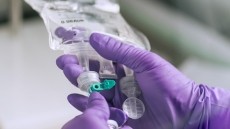The patent lives in Hospira v MedCo: good news for CMOs

“This is a good thing for CMOs because it will continue to assure patent holders/brand companies that they can engage CMOs to do work … and not necessarily disqualify the result of that work when qualifying for a patent,” Shashank Upadye, LL.M, Registered Patent Attorney, Amin Talati & Upadhye, told us.
The background
The Medicines Company (MedCo) holds a patent covering Angiomax that expires in 2028.
During the development of Angiomax, MedCo contracted the CMO Ben Venue Laboratories (Ben Venue), who made several batches of the drug in order to improve the process.
After filing the patent, the product’s "on sale" bar critical date was set at July 27, 2007 (a sale prior to this date would invalidate the patent claim).
However, Ben Venue completed three batches of the improved drug before this date, at which time MedCo paid them $347,000. According to MedCo, the batches themselves had a market value of more than $20m.
The batches were then placed in holding with the company’s distributor Integrated Commercialization Solutions (ICS) pending FDA approval. MedCo didn’t release any of the batches before August 2007, a month after the July 2007 critical date.
The case
On August 19, 2010, MedCo sued Hospira in the US District Court for the District of Delaware, claiming that Hospira’s two ANDA filings infringed various patent claims.
After a three-day bench trial in September 2013, the court determined that the patents were not invalid and not infringed – claiming that MedCo had invalided its patent by paying its CMO, Ben Venue, before July 27, 2007.
Upadhye explained that the case was mainly an issue of timing, as “the potential sale of commercial batches was long before the patent application was filed,” he said.
The issue of timing is imperative because if a product is determined to be “on sale” more than one year before the patent filing, the patent becomes invalid.
As a result of the ruling, MedCo asked the court hold en banc – which gave the company the chance to argue its case before the entire bench, as opposed to the adjudicated panel of three that had made the original ruling.
The en banc panel ultimately concluded that it was not a commercial sale, noting that what MedCo had contracted was services, not a product manufacture.
The reasoning
According to the court’s opinion, there were three reasons for their judgement in the case.
First, only manufacturing services were sold to the inventor.
“Under MedCo’s instructions and using an API supplied by MedCo, Ben Venue acted as a pair of “laboratory hands” to reduce MedCo’s invention to practice,” the opinion said.
The inventor, MedCo, also maintained control of the invention. Specifically, it retained the product’s title. “As a consequence the CMO didn’t have the right to go and sell the product to whomever they wanted to,” explained Upadhye, “which is normally a hallmark of retaining title.”
He added, “Another factor that implied it wasn’t a commercial sale was the issue of confidentiality.”
Under the confidentiality agreement the CMO couldn’t advertise the work being done. Upadhye explained that this is “of course is antithetical to what you do if you are selling something.”
“That helps imply there is no offer and a sale,” he said.
The court also concluded that “stockpiling” standing alone, “does not trigger the on-sale bar.”
“Ultimately the court decided that the hallmarks of a commercial sale were not present,” said Upadhye, “and as a consequence the CMO’s sales to MedCo were sales of services and not sales of product and the patent lived.”
The response
Hospira, now a part of Pfizer, told us in a company statement that, “We remain confident in our IP position with respect to bivalirudin.”
While MedCo didn’t respond to a request for comment, in the company’s press release published earlier this week, Clive Meanwell, MD, PhD, CEO, The Medicines Company, said, "We are pleased that the district court decision on invalidity has been upheld. We continue to believe that our patents are valid and infringed by the ANDA filers, and are now considering all of our options with respect to Hospira, Mylan, and other generics."
Yet, the decision has implications for all CMOs and those companies with whom they partner.
Catalent’s VP of Global Marketing & Strategy, Elliott Bergertold us, “This important court decision confirms that drug innovators can partner with Catalent while developing their medicines without risk to their critical patent rights.”











